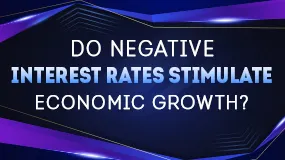简体中文
繁體中文
English
Pусский
日本語
ภาษาไทย
Tiếng Việt
Bahasa Indonesia
Español
हिन्दी
Filippiiniläinen
Français
Deutsch
Português
Türkçe
한국어
العربية
Republicans love Alexandria Ocasio-Cortez's plan to cap interest rates
Abstract:Overall, about 68% of respondents said they either support or strongly support the plan the Loan Shark Prevention Act.
The vast majority of both Republican and Democratic primary voters support Rep. Alexandria Ocasio-Cortez and Sen. Bernie Sanders' plan to cap credit-card interest rates.Nearly 70% of Republican primary voters and 73% of Democratic primary voters said they either support or strongly support the proposal, according to a new INSIDER poll.Overall, about 68% of respondents said they either support or strongly support the plan and 10% oppose the rate-capping component of the Loan Shark Prevention Act.The two progressive lawmakers rolled out their legislation last week. The bill would set credit-card interest rates at 15%, about 6% lower than the current median interest rate.Visit Business Insider's homepage for more stories.The vast majority of both Republicans and Democrats who said they plan to vote in the 2020 presidential primary support legislation rolled out by Rep. Alexandria Ocasio-Cortez and Sen. Bernie Sanders last week that would cap credit-card interest rates at 15%.Nearly 70% of Republican primary voters and 73% of Democratic primary voters said they either support or strongly support the proposal to cap rates at 15%, according to a new INSIDER poll. Just over 60% of respondents who don't plan to vote in the 2020 presidential primaries also said they support the bill, known as the Loan Shark Prevention Act.Just 13% of GOP primary voters were opposed to the idea, while 7% of Democratic primary voters were opposed.Read more: Here's how Americans rank the 2020 presidential candidates on the political spectrumINSIDER specifically asked Americans whether they support or oppose a law that would cap credit-card interest rates at 15%, noting that the current median interest rate for a credit card is about 21.36%.Overall, about 68% of respondents said they either support or strongly support the plan and 10% oppose it.Support for the cap was consistent across income levels, but higher-income respondents appeared to support the proposal more strongly than the average respondent — though the sample size was too small to draw any specific conclusions.Read more: 57% of Americans who've already paid off their student loans support Elizabeth Warren's plan to cancel 42 million Americans' college debtUnder the proposed law, the annual percentage rate applicable to any extension of credit would be capped at 15% on “unpaid balances, inclusive of all finance charges” or “the maximum rate permitted by the laws of the State in which the consumer resides.”In short, the bill would impose the cap on credit-card interest rates at the federal level and allow states to establish even lower interest rates. The bill would also give the Federal Reserve flexibility to allow lenders to charge higher rates if it's determined the federal cap “would threaten the safety and soundness of financial institutions.”The median credit-card interest rate was 21.36% as of last week, compared with 12.62% a decade ago, according to Creditcards.com. Meanwhile, Americans collectively hold more than $1 trillion in credit-card debt, according to the Federal Reserve.The law would implement a 15% interest-rate cap on all federal loans and also institute postal banking — allowing the US postal service to offer banking services as an alternative to payday lenders and commercial banks.SurveyMonkey Audience polls from a national sample balanced by census data of age and gender. Respondents are incentivized to complete surveys through charitable contributions. Generally speaking, digital polling tends to skew toward people with access to the internet. SurveyMonkey Audience doesn't try to weight its sample based on race or income. This survey had a total 1,127 respondents, a margin of error plus or minus 3.12 percentage points with a 95% confidence level.
Disclaimer:
The views in this article only represent the author's personal views, and do not constitute investment advice on this platform. This platform does not guarantee the accuracy, completeness and timeliness of the information in the article, and will not be liable for any loss caused by the use of or reliance on the information in the article.
Read more

Rate Rumble: RBNZ, BoC, and ECB Take Centre Stage
The New Zealand central bank maintain its benchmark interest rate at 5.50% as expected during its previous meeting. While there was no surprise of the central bank paused rates, the less hawkish tone was a surprise as 23% of the market surveyed by Reuters predicted an interest rate hike. In February, the rate of consumer price growth in the United States picked up pace with the reading came in at 3.2%, surpassing expectations of 3.1% for underlying inflation.

Do Negative Interest Rates Stimulate Economic Growth?
While the coronavirus is threatening the global economy, the debate about whether negative interest rates could spur economic growth has emerged again.
Insider poll: Just 51% of Americans say they got their stimulus money - Business Insider
48% of respondents said they're experiencing some degree of economic hardship from the coronavirus. Only 28% identified as unaffected.
72% of Americans say they're feeling the financial toll of COVID-19 - Business Insider
In a new Insider poll, 72% of Americans said they are experiencing some level of financial hardship due to the coronavirus.
WikiFX Broker
Latest News
Geopolitical Events: What They Are & Their Impact?
Top 10 Trading Indicators Every Forex Trader Should Know
ASIC Sues Binance Australia Derivatives for Misclassifying Retail Clients
WikiFX Review: Is FxPro Reliable?
Malaysian-Thai Fraud Syndicate Dismantled, Millions in Losses Reported
Trading frauds topped the list of scams in India- Report Reveals
Why Do You Feel Scared During Trade Execution?
WikiFX Review: Something You Need to Know About Markets4you
Revolut Leads UK Neobanks in the Digital Banking Revolution
Fusion Markets: Safe Choice or Scam to Avoid?
Currency Calculator


